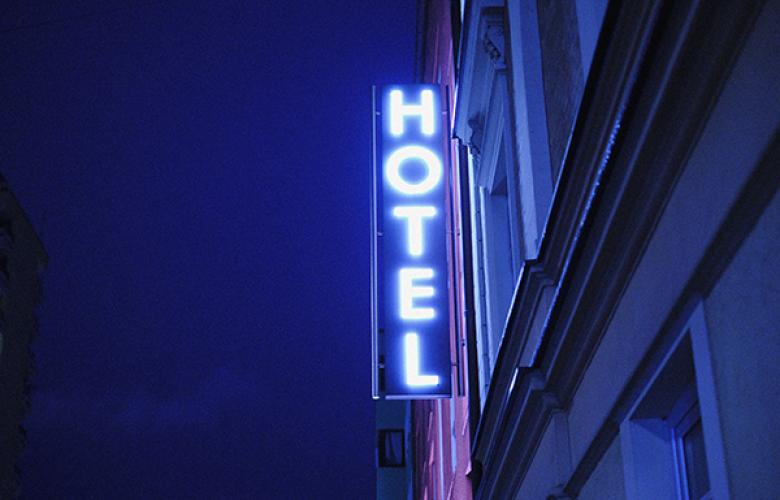Airbnb debuting their first hotel
Contact
Airbnb debuting their first hotel
Airbnb is partnering with Newgard Development Group (based in Miami) to create a series of apartment buildings that will be branded Niido Powered by Airbnb.
Dean Minett of Minett Consulting has said that one of the most amazing facts about Airbnb is that, despite being more valuable than any hotel chain in the world, it has no physical inventory. The company provides branding, online infrastructure, a booking platform, and a quality control system — but all of its properties and rooms belong to other people. The fact that Airbnb has seen such astronomical growth and valuation without owning a single building makes you wonder how this business model wasn’t exploited sooner.
But the rise of Airbnb has not been without challenges — e.g. disgruntled neighbors, landlords and city councils. Many associations have taken aggressive tactics to prevent owners and renters from listing units on Airbnb. Entire cities (Paris, Barcelona, New York, and many others) have tightened the rules.
In a bid to mitigate ethical and legal issues — and to expand the way property owners and tenants think about Airbnb — the company is stepping into the world of branded properties. It was announced in October of 2017 that Airbnb is partnering with Newgard Development Group (based in Miami) to create a series of apartment buildings that will be branded “Niido Powered by Airbnb.” The first will be built in Kissimmee, in the U.S. State of Florida. Tenants of the 324 unit property will be allowed to rent their flats for up to half the year. If you’re renting rather than owning, profits are shared with your landlord through Airbnb’s Friendly Buildings Program — an initiative that aims to establish clear rules and expectations between tenants and landlords.
Basically, the partnership shows how Airbnb can be totally integrated into an apartment block — all you have to do is bring owners, tenants, guests, and building management into perfect sync. This means changing the guest experience to more closely resemble that of a modern hotel. These properties will include on-site management that can be “triggered” by hosts. Guests will also have a dedicated concierge and luggage storage, keyless entry, and an Niido app that makes it easier to check in and request assistance.
By now, you might be asking yourself: Is this a timeshare?
The answer may not be “yes” entirely, but it might not be “no” either. Another way of looking at it would to say Airbnb are introducing their own soft brand! (Or is it a hard brand?) Either way, it was only a matter of time before Airbnb experimented with putting their name on a physical property, and giving that property a flexible ownership and profit structure. If nothing else, it’s a creative nod to the idea of flexible living and profit sharing opportunities — and it’s honest about the fact that people and investors would like diverse ways to turn a profit through the share economy movement.
In this particular deal, tenants will apparently receive 73% of the profit. Landlords will receive 25%, and Airbnb takes the remaining 3%. We might see these percentages shift as other schemes are introduced, but “everybody wins” is the rallying cry. Tenants are effectively given a lease that is profit sharing-friendly, with infrastructure that makes if feasible to fund your own travel by lowering rent through profit sharing. Landlords are happy because they receive a guaranteed monthly rent, plus higher rent when the tenant is making money. Airbnb is happy because they’re making headlines and proving themselves relevant, even if the concept doesn’t go far.
Is it an overstatement to say that Airbnb apartment buildings will end up looking like hotels? There are check-ins and check-outs every day, with concierge and luggage retrieval services. It quickly comes to resemble a hotel (or “aparthotel”) in which some of the original leaseholders are living some of the time. This might not be a bad thing — in fact, we might see more apartment complexes introduce Airbnb-friendly rules in order to make the lease more attractive.
It all makes you wonder how far these amalgamations are going to go, and where commercial hospitality is going to end up. Oasis Collections is a fine example of a hotel company trying to look and act like Airbnb while promising higher standards of quality (their phrasing includes “Handpicked Homes, Hotel Standards and High Service”). The Niido/Airbnb deal is another movement in that direction. The trend of hotel chains buying up boutique chains, and offering more flexible franchise options, is yet another.
You may well now ask, where is it all headed? The answer is wherever the money is.
All of the experiments we see in the Airbnb-age are evidence that the totality of the guest experience is at the very core of our industry but that making money isn’t far behind.
Click here to view the Newgard Development Group website.
Click here to visit the Minett Consulting website.
To discuss the hotel industry in further detail contact Dean Minett via the below contact details.
See also:
Country Inns gets a name change backed by Radisson
Daydream Island’s $86m redevelopment
$252m Twin-Tower hotel approved for Melbourne's Fishermans Bend







